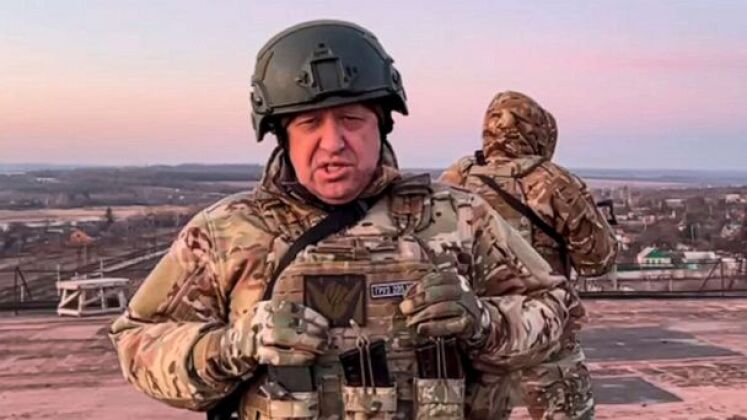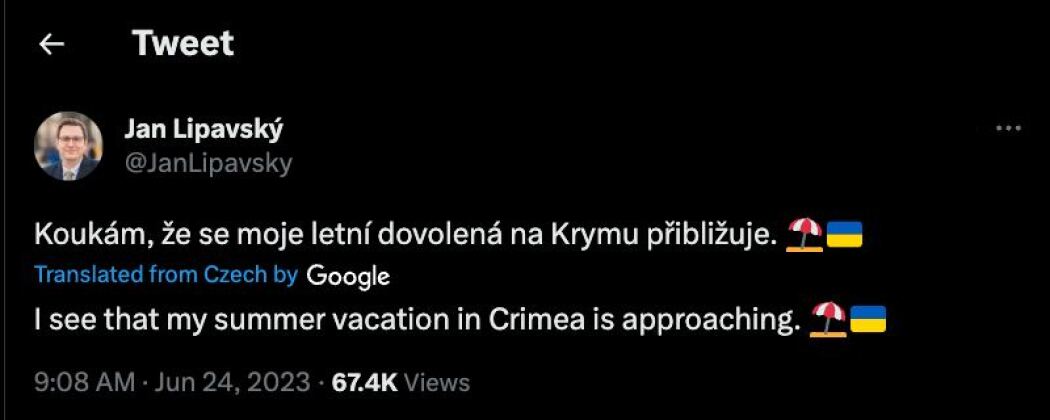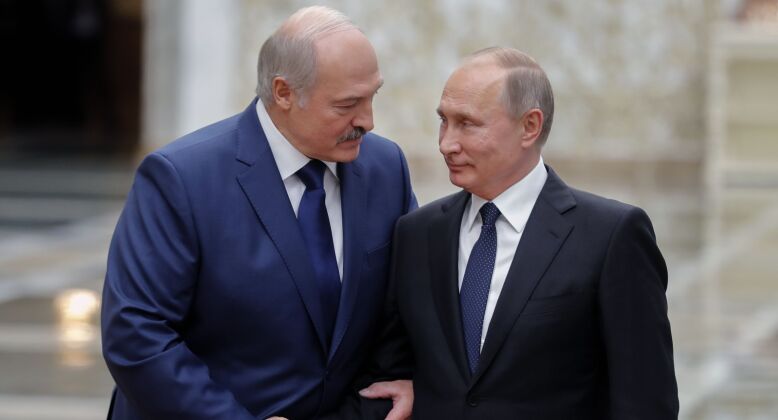News
Russia on the Brink of Civil War? How the West Responded to Wagner’s Unfolding 24 Hour Coup Attempt

In the late hours of June 23 a video emerged from the head of the Russian Wagner Group private paramilitary organisation, Yevgeny Prigozhin, announcing that his forces would march on Moscow to “punish” the leadership, and in particular the Russian Defence Ministry, and “restore justice.” He alleged that Russian forces had launched a missile strike against Wagner assets, which followed a long history of complaints of insufficient arms supplies. “There are 25,000 of us and we are going to figure out why this chaos is happening in the country,” said Prigozhin, adding that this figure “is a tactical reserve, but the strategic reserve is our whole army and the whole country. Everyone who wants, join us.” The Wagner Group has played a central role in Russian military operations against Ukraine, including spearheading the months long battle to capture the city of Bakhmut. While forces in Ukraine have largely recruited from Russia’s prison population, the organisation also has a widespread presence providing security related services to partners across the world from Venezuela and Mali to Syria and the Central African Republic where forces are primarily comprised of former servicemen.
Amid reports of Wagner forces moving towards the Russian capital, responses from across the world reportedly varied widely. Jubilance in the West, and in Ukraine in particular, was often hard to conceal, with Czech Foreign Minister Jan Lipavsky posting on Twitter: “I see that my summer vacation in Crimea is approaching” in reference to Western and Ukrainian aspirations to recapture the strategically located peninsula which was integrated into Russia in 2014. This was in line with Pragues position, and countries in Eastern Europe more generally, of making more outspokenly hawkish statements against Western adversaries including Russia. Ukrainian intelligence chief Kirill Budanov praised Prigozhin for “telling the truth” due to his criticisms of the Russian government. Politico was among multiple Western sources reporting that the attempted coup would allow Ukraine to revitalise its stalling attempted offensive, citing senior U.S. and other Western officials who were in consensus that it provided “an unprecedented opportunity to advance.” U.S. Congressman Jason Crow was among many to highlight that Kiev “should move fast to capitalise” on the disorder. The U.S. State Department notably delayed a planned announcement of further economic sanctions on the Wagner Group, which is currently one of the most heavily targeted private entities by Western economic warfare efforts, in order to avoid siding with the Russian government during the unfolding conflict. U.S. Chairman of the Joint Chiefs General Mark Milley cancelled a planned trip to the Middle East to monitor the unfolding events in Moscow from Washington

Western internet sources, and particularly pro-Ukrainian Telegram channels, circulated a range of extreme claims, including that Russian President Putin had fled Moscow or that Iranian Revolutionary Guard Corps units had been deployed to the Russian capital to reinforce the government. CNN described Wagner as a “dark, mercenary Frankenstein…which has turned on its masters,” predicting that its actions will “alter the course of the war in Kiev’s favour.” “Putin’s regime will ever go back to its previous heights of control from this moment… further turmoil and change is ahead,” it predicted, reflecting the broad consensus in the Western world. The Financial Times, meanwhile, reported: “It is hard to believe that Putin can ultimately survive this kind of humiliation… His prestige, his power, even his life, are now on the line.” Other outlets such as the British Telegraph claimed Western powers were considering major escalation of their campaign in Ukraine to capitalise on the disorder, attributing the possibility of a coup to the nature of the Russian political system and its lack of sufficient westernising reforms.

Ultimately the turmoil surrounding Prigozhin’s march on Moscow lasted little over 24 hours, with Belarusian President Aleksander Lukashenko intervening to mediate and offer the Wagner leadership an opportunity to stand down peacefully. Upon accepting this offer it was confirmed that Prigozhin would go to Belarus presumedly to retire. Under this arrangement Prigozhin and Wagner fighters would not be prosecuted. Belarus had long offered its services as a mediator between Moscow and its adversaries, including for years with Ukraine. The brevity of the coup attempt has fuelled widespread speculation as to whether it may have been a staged effort, possibly to test loyalties within the government in Russia and root out those who failed to stand with Vladimir Putin’s administration – including in the Defence Ministry which was responsible for securing Moscow. Should this have been successful, the coup attempt may in fact consolidate the administration’s power rather than undermining it. In contrast to reports of a staged operation, unconfirmed reports from Russian-aligned sources indicated that British intelligence played a role in turning Wagner’s leadership against Moscow, possibly with reassurances and cherry picked intelligence indicating that they would receive support from within the military, while other reports claimed American intelligence had supplemented these reassurances with an offer of funds – specifically $6.2 billion. These reports were all unconfirmed, but served to further increase speculation regarding the nature of the apparent coup attempt.












